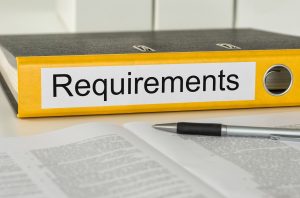
A commercial driver’s license, or “CDL,” is necessary for those who want to make a living towing at least 10,000 pounds or driving any other large passenger vehicle to transport more than eight people. At the federal level, most of the Federal Motor Carrier Safety Administration’s CDL requirements are actually eligibility criteria determining who can get a license. The actual process of earning your CDL is surprisingly simple in most states. It’s only which company you choose to work for that can make actually getting a good driving job with your CDL license more complicated.
Most experienced truckers will tell you to consider who you want to drive for first and then check out what kind of training they expect you to have before hiring. Prepare yourself to network with other drivers on the road for the latest advice on who’s hiring entry-level drivers now and where the best jobs are before you spend a bundle on a top truck-driving school that doesn’t guarantee you any kind of job placement.
Determine Your Eligibility
Beware: Not everyone who has a regular driver’s license is automatically eligible to take the tests for a CDL license.
- Only those 18 years old and up can hold a CDL license. If you’re between 18 to 20, you can only drive on routes within your home state.
- If you’re at least 21 years old, then you can drive on all interstate routes across the United States, and you also qualify to drive trucks with hazardous materials.
- You cannot have certain criminal offenses on your record. Check your state’s laws to see which offenses are unacceptable for a CDL license.
Understand the Federal CDL Requirements
The truth is that it’s really just a two-step process, and you don’t even have to get months of formal training unless the company you plan to work for demands it before hiring you. All that the federal law needs you to do to get a CDL is:
1. Download or order your state’s version of the CDL manual from the DMV. Study it to pass the written CDL test at your local DMV to get your CDL permit.
2. Take the road-skills test, which is the actual driving portion of the exam, after you’ve had your permit for at least 14 days. The catch is that it’s up to you to bring a vehicle to use for the skills test, and it must be the same kind of truck you’ll drive after getting your license. During this test, you must be able to perform a complete vehicle inspection along with showing that you understand all the controls and can perform all standard maneuvers.
Some states won’t let you take a skills test to get your license until you go through official training, but other states don’t care about your formal driving experience as long as you can demonstrate your appropriate driving ability of the truck or vehicle you’re working with. Check with your state’s DMV.
Collect the Documents Needed
- Provide your driver’s license, which should obviously be current.
- Show your driving history from the past 10 years if your state doesn’t look it up electronically.
- Give a form completed by a qualified medical examiner proving that you’re physically capable of driving commercial vehicles.
Additional endorsements on your CDL license require you to take additional tests. You’ll need these extra endorsements for driving school buses, hazardous materials, tanks and other special equipment or supplies.
Become Familiar With the HazMat Requirements
To become a hazmat driver, you need to give your fingerprints for an official background check. The government will deny your application if they find any records of you spending time in a mental institution or if airport TSA personnel ever considered you as a security threat in the past. You shouldn’t have a criminal background of any kind either. Even if someone’s charging you with committing a felony that you didn’t do and the case is still under review, you’re likely to get a denial on your hazmat application. Plus, only U.S. citizens or U.S. lawful permanent residents can get a hazmat endorsement.
Learn About the Various Educational Options
If you do decide to pay for your education at a trucking school affiliated with the company you want to drive for, it can be very expensive. On the plus side, then you can expect to get much more thorough instructions, a manual and certified hours driving under the supervision of a trainer who’ll serve as your personal coach.
When searching through driving job listings, you should know that “OTR” companies are those who send drivers all “over the road,” keeping you on a job for up to three weeks out of a month. They often hire new drivers with a license and no experience, probably because most people prefer to stay local or regional. OTR jobs are how new drivers pay their dues in the industry to get a better driving job. The definition of OTR will vary based on the company you work for and their routes, which could be all across the continental United States or “the lower 48,” all states but Alaska and Hawaii.
/rating_on.png)
/rating_off.png)